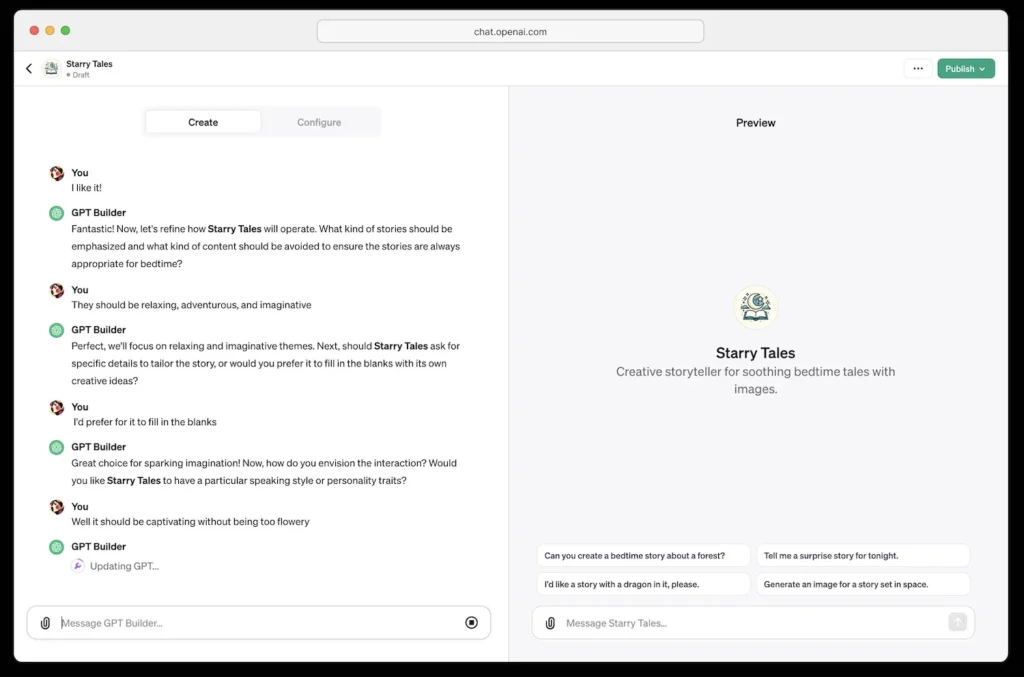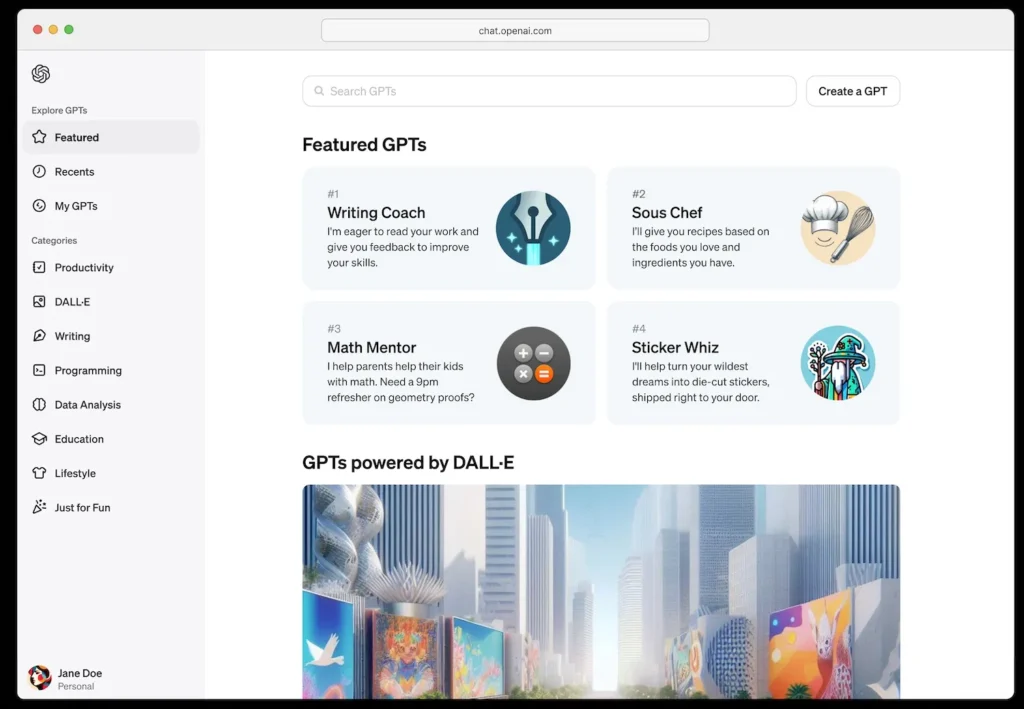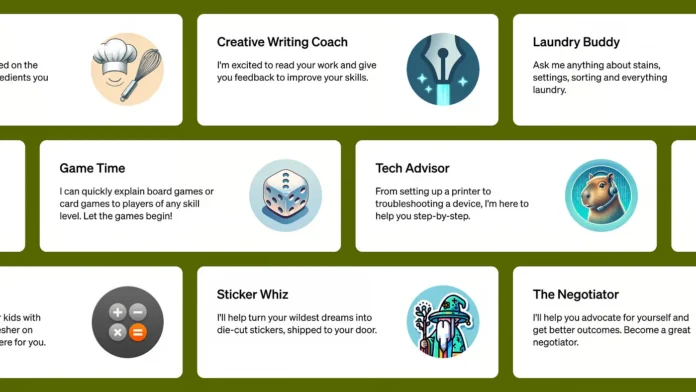OpenAI has opened the GPT store, a way for anyone to create their own version of the popular conversational AI system. Not only can you create a GPT of your own for fun or productivity, but you'll soon be able to publish it on a marketplace they call the GPT Store, and maybe even make a little money in the process.
The new features, announced along with many others at OpenAI's developer day in San Francisco, indicate a more hands-off approach to the AI market, which until now has been defined by a handful of dedicated general-purpose systems. Indeed, such systems are becoming even more versatile with new capabilities, but the AI giant has clearly taken a page from Apple's book in seeing that being the go-to platform for the ingenuity of others is at least as valuable as having ingenuity oneself. .
“We believe that if you give people the tools, they will do amazing things,” said founder and CEO Sam Altman.
To that end, the company is introducing what it calls GPT, "custom versions of ChatGPT that you can create for a specific purpose." And yes, you can expect some confusion on that point, since GPT, or “generative pre-trained transformer” is actually the technical term for this type of large language model.
GPTs can be created without coding experience and can be as simple or complex as the creator wishes, as they explained.
For example, there could be a GPT trained on the collection of one's own recipes to be able to quickly ask what ingredients are needed for that soup. Or have him ingest information about a sprawling fantasy series so you can ask him “wait, who is Sir Roderick Random?” And if you're more serious, as a developer or company you could have a GPT trained on all your proprietary code, so others can quickly check your style or generate harmonious code.

It is possible to create a GPT simply by chatting with ChatGPT and describing what the author wants; It will soon be tested.
"You can actually program a GPT with language just by talking to it," Altman said. “It's easy to customize behavior to do what you want; This makes them very accessible and gives freedom to everyone.
He demonstrated this on stage, describing to ChatGPT in a “GPT New Draft” that he wanted to create a bot that would advise founders on how to improve their startup. She then uploaded a lecture she had given on the subject, told it to be concise and constructive, and decided it was ready to go.
You'll also be able to incorporate external services, such as sending an unsupported language to a translation API, but users will be able to choose whether their data can be handled that way.
An app store for AI

Perhaps the most impactful announcement of all was the OpenAI GPT Store, which will be the platform on which these GPTs will be distributed and eventually monetized.
Later this month, we will launch the GPT Store, featuring creations from verified authors. Once in the store, GPTs are searchable and can move up the leaderboards. We'll also highlight the most useful and engaging GPTs we found in categories like productivity, education, and "just for fun." In the coming months, you will also be able to earn money based on the number of people who use your GPT.
Sounds familiar? The App Store model has proven to be incredibly lucrative for Apple, so it should come as no surprise that OpenAI is trying to replicate it here. GPTs will not only be hosted and developed on OpenAI platforms, but will also be promoted and evaluated.
"We're going to pay the people who use the most used and most useful GPTs with a portion of our revenue," and they will be "excited to share more information soon," Altman said. It is unclear at this time if there will be the ability to simply charge for your GPT, or if it will be strictly a revenue share.
It's unclear who exactly these "verified builders or authors" are, but presumably that's just a roadblock to prevent low-effort, fraudulent stuff from arriving. But they demonstrated GPTs created by Code.org, TripAdvisor, and Canva, so it's possible that these are more official apps than individual GPT experiments at first.
OpenAI is clearly aiming high, and the decision to establish itself as a platform independent of existing app stores and distribution methods may put it in direct conflict with industry giants like Apple and even its perennial sponsor, Microsoft. Apple may take issue with monetizing GPT models without taking its share through the App Store, so OpenAI will have to tread carefully here.
And Microsoft is about to introduce its own Copilot models specific to tasks like Office tools, and it certainly looks like GPTs could clash with those enterprise-grade models.
CEO Satya Nadella briefly appeared on stage to reiterate how excited he is about the partnership, but there's certainly a sense that OpenAI is the one moving forward and Microsoft is relegating itself to a supporting role. How long can that relationship remain friendly? The next few years will be, to say the least, interesting.
The details of the GPT Store are being developed as OpenAI gets into them throughout its journey with developers.




